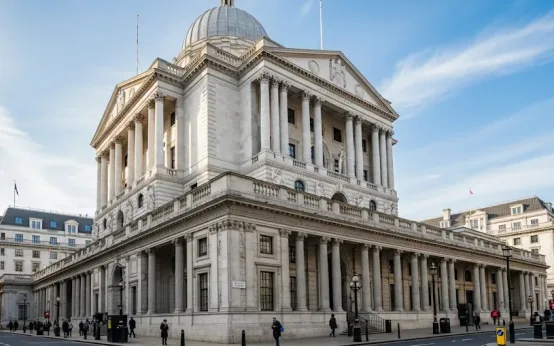The U.S. debt ceiling crisis, a political standoff that periodically re-emerges in Washington D.C., may seem like a distant, domestic issue. However, given the U.S. dollar’s role as the world’s reserve currency and the sheer size of the American economy, any political turbulence there has significant ripple effects on global markets. For UK residents, this means that a debt ceiling crisis can directly impact the value of their investments, their pension funds, and even the exchange rate of the pound. The political brinkmanship can lead to market volatility, which in turn can affect the UK’s financial stability. This article will demystify the U.S. debt ceiling, explain its potential consequences, and provide a clear overview of how it impacts investors in the UK.
What is the U.S. Debt Ceiling?
The U.S. debt ceiling is a legislative limit on the amount of national debt the U.S. government can accumulate. It’s not about authorising new spending; rather, it’s about paying for spending that has already been approved by Congress. The U.S. Treasury borrows money by issuing government bonds, known as Treasury bonds, to finance its operations. When the national debt reaches the ceiling, the Treasury can no longer borrow money to pay its bills.
While the debt ceiling has been raised or suspended numerous times throughout history, recent years have seen it become a political tool, with opposing parties using the vote as leverage for other legislative goals. The brinkmanship that ensues, with politicians publicly debating a potential default, can create widespread uncertainty and panic in financial markets around the world.
The Impact of a Potential U.S. Default
A failure to raise the debt ceiling would have catastrophic consequences, both in the U.S. and globally. A U.S. default, even a technical one, would be unprecedented. The U.S. government would be unable to pay its obligations, including salaries, social security payments, and, most critically for investors, interest on its Treasury bonds. U.S. Treasury bonds are considered the safest asset in the world, the benchmark for risk-free returns. A default would shatter this perception of safety.
The fallout would be immense. It would likely lead to a global financial crisis, as banks and financial institutions worldwide hold vast amounts of U.S. Treasury bonds. The value of these assets would plummet, leading to a liquidity crunch and a crisis of confidence. The Bank of England would likely have to step in to stabilise the UK financial system, but the economic damage would be severe and widespread.
How It Affects UK Stock Markets and Pensions
The interconnectedness of global finance means that the UK stock market, including the FTSE 100, would not be immune to a U.S. debt ceiling crisis. In a scenario of heightened political tension, or a full-blown default, investors typically flee to safe-haven assets. While this might include gold and certain currencies, it would also mean a general sell-off of riskier assets, including shares. This flight from risk would likely cause a sharp decline in the value of the FTSE 100 and other UK indices.
For UK residents, this has direct consequences for their pension funds and ISAs. Most pension funds, whether they are a defined contribution or defined benefit scheme, have some degree of exposure to U.S. markets, either directly through holdings in American companies or indirectly through global tracker funds. A sudden market downturn would reduce the value of these pension funds, potentially impacting a person’s retirement savings. Even if the crisis is resolved, the period of uncertainty can still cause volatility and stress for investors.
The Pound vs. The Dollar: Exchange Rate Volatility
The U.S. debt ceiling crisis can also have a direct impact on the value of the pound sterling against the U.S. dollar. The dollar’s status as a global reserve currency means that its value can be highly sensitive to political and economic instability. In the initial stages of a crisis, the dollar may paradoxically strengthen as investors seek the perceived safety of U.S. government assets, even if a default is on the cards.
However, a serious crisis or a default would cause a loss of confidence in the dollar, leading to a sharp and unpredictable depreciation. This volatility in the exchange rate would have a knock-on effect for UK consumers and businesses. For UK consumers, a weaker pound against the dollar would make imported goods from the U.S. more expensive. For UK businesses that trade with America, a fluctuating exchange rate makes it difficult to forecast costs and revenues, creating a new layer of business risk.
The Role of UK Regulators and Investor Protection
In the UK, financial institutions and investors are not left completely exposed. The Financial Conduct Authority (FCA) is responsible for regulating financial services firms and ensuring they have robust systems in place to manage risk. In the event of a global market shock, the FCA would work to maintain financial stability and ensure that firms are acting in the best interests of their customers, in line with their Consumer Duty.
Furthermore, a significant portion of a UK investor’s portfolio is often held in cash or in other stable assets, which may provide some protection. For example, cash held in a UK bank account is protected up to £85,000 per person by the Financial Services Compensation Scheme (FSCS). However, this protection does not extend to investments, which are always subject to market risk.
Next Steps: Staying Informed and Prepared
The U.S. debt ceiling crisis is a stark reminder of the interconnected nature of global finance. While it is a political issue in America, its repercussions can be felt by UK investors and consumers alike. The most sensible action for any UK resident is not to panic, but to stay informed and to ensure their portfolio is well-diversified. Review your pension and ISA holdings to understand your exposure to U.S. markets. Speak with a financial adviser if you are concerned about your portfolio’s ability to withstand market volatility. While you cannot control political events across the Atlantic, you can control how you prepare for and react to them.

 Impact of the Ukraine-Russia War on Global Markets Today
Impact of the Ukraine-Russia War on Global Markets Today  BRICS Expansion: Will It Transform Global Trade?
BRICS Expansion: Will It Transform Global Trade?  How the Bank of England Interest Rate Affects You
How the Bank of England Interest Rate Affects You